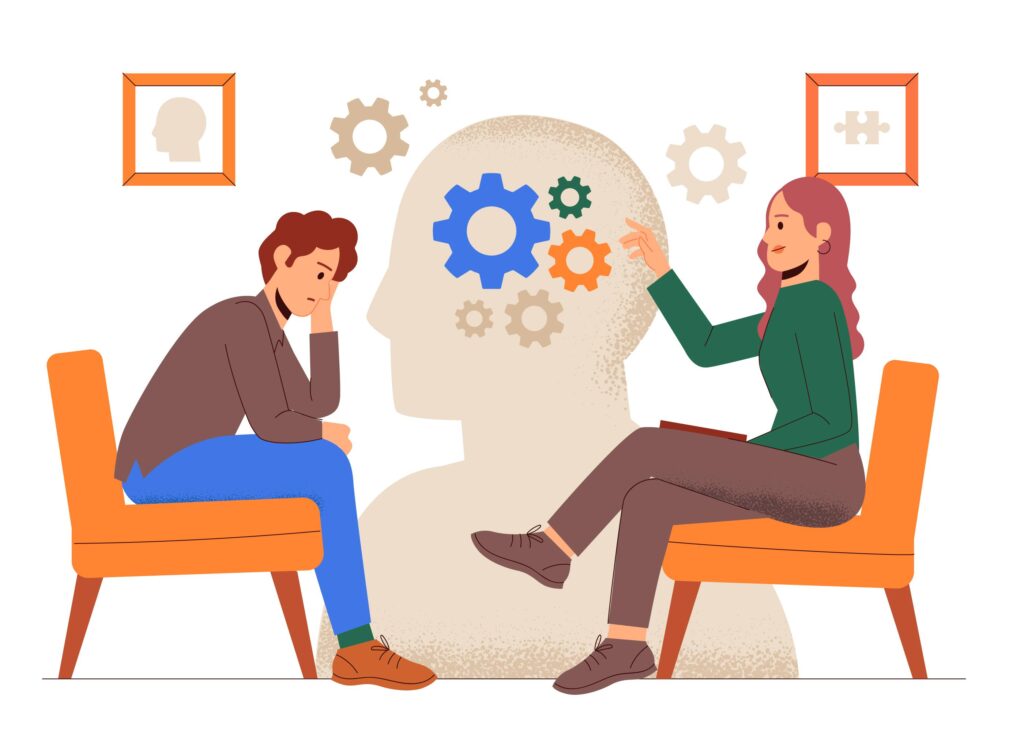Dealing with emotionally immature individuals can be challenging, impacting personal relationships, work dynamics, and overall well-being. Understanding what defines emotional immaturity and recognizing the signs can empower you to navigate such interactions effectively.
Table of Contents
Understanding Emotional Immaturity
What Defines Emotional Immaturity?
Emotional immaturity encompasses a range of traits, including impulsivity, inability to handle stress, and difficulty in taking responsibility for one’s actions. It often involves a lack of emotional regulation and self-awareness.
Signs of Emotional Immaturity
Recognizing signs like constant blaming, difficulty in handling conflicts, and a tendency to play the victim role helps in identifying emotionally immature behavior.

Types of Emotionally Immature People
The Blame Projector
They refuse to acknowledge their role in their life and situations. There’s an urge to always be proven right, always shifting blame to someone or something else.

Surprisingly, they consistently deflect blame onto others, portraying themselves as victims. Offering financial help results in dependence without any initiative to change their circumstances.
How to Deal with a Blame Projector
Recognize that it’s their life, and they possess the capability to navigate it. Shielding them from the consequences of their actions hinders their growth. Refrain from getting entangled in their manipulative stories where they shift blame. Avoid engaging extensively in their blame games.
I’ve encountered someone similar, initially appearing innocent in their stories. Over time, a recurring pattern becomes evident in every situation. When others try to dump their problems on you, it’s crucial to protect your emotions. This is super important, especially if you live with them or can’t create physical space. You must affirm their capability and ability to deal with what life brings them. The best and healthiest response would be something like “I trust you will figure it out”. If you start feeling their emotions inside you, try physically shaking it off—move, dance, jump! It helps your nervous system relax and bounce back.
The Personalizer
These emotionally immature folks tend to take everything personally and quickly assume things, even if they’re not accurate. They find comfort in believing everything’s their fault, seeking constant reassurance for validation.
Their high-anxiety energy makes them jump to conclusions like ‘I’m awful,’ ‘I should disappear to solve your problems,’ or ‘I’m a terrible friend.’ They deeply struggle with insecurity.

How to Deal with the Personalizer
If you notice them feeling upset, give them space to sort it out—it’s their issue, not yours. Listen without dismissing their feelings. But keep your replies brief; don’t overexplain. It’s not healthy for you as it can put undue stress on you. The personalizer believes that others are responsible for their emotional state.
The Social Butterfly
They rarely plan ahead and live in the moment, seeking instant gratification. Their focus revolves around present pleasure, leaving concerns for the future aside. Often, they’re so absorbed in their own world that they overlook how their actions affect others. Their impulsive spending and carefree attitude may seem enjoyable, but their lack of responsibility leads to numerous problems.

How to Deal with the Social Butterfly
The best approach with them is to allow them to face the consequences of their choices. It might feel tough seeing someone in trouble, but that’s how people learn. Rescuing them from their problems will only keep them stuck in old habits that caused those issues. Avoid enabling their behavior.
The Provoke
The provoker intentionally creates conflict in an attempt to connect, lacking healthy ways to express their desire for connection. They get emotionally charged by stirring drama or issues among others.
For them, pushing buttons is their way of connecting, although they used to enjoy getting reactions from people, they’re often unaware of the harm they cause.

How to deal with a Provoker
Never engage with a provoker, no matter how logical you try to be. They’ll keep pushing buttons until they get a reaction. Not responding signals to them that they won’t get a rise out of you.
During any encounter with a provoker, stay aware, take deep breaths, and avoid falling for their emotional tricks. This keeps you safe and throws them off balance. Find peace by letting them be, while you remain true to yourself.
Impact of Emotionally Immature Individuals
Relationships
Emotionally immature individuals often struggle to maintain healthy relationships. Their behavior can lead to frequent misunderstandings, conflicts, and an inability to provide the needed support.
Work Environments
In professional settings, these traits can manifest as an inability to work in a team, challenges in handling feedback, and difficulty in managing stress, affecting overall productivity and collaboration.
Identifying Emotionally Immature People
Behavioral Patterns
Observing consistent patterns like defensiveness, inability to handle criticism constructively, and a lack of accountability aids in identifying emotionally immature individuals.
Communication Styles
Emotionally immature people often struggle with effective communication, resorting to passive-aggressive behavior, avoiding discussions, or displaying exaggerated emotions.
Dealing with Emotionally Immature Individuals
Setting Boundaries
Establishing clear boundaries is crucial when dealing with emotionally immature individuals. It helps protect your well-being and sets expectations for respectful behavior.
Empathy and Understanding
Approaching them with empathy and understanding their struggles can create a conducive environment for productive conversations and potential growth.
Offering Support
Providing support while maintaining boundaries is essential. Encouraging them to seek help or professional guidance can be beneficial.

Self-Care Strategies
Protecting Your Emotional Well-being
Prioritize self-care to safeguard your emotional health. Engage in activities that bring joy and peace, helping you navigate challenging interactions better.
Seeking Professional Help if Needed
If dealing with emotionally immature individuals significantly affects your mental well-being, seeking therapy or counseling can provide valuable guidance and support.
You can also read an article written by a fellow on this topic Here and watch the Video Given Below for further Details.
Conclusion
Navigating relationships or work dynamics with emotionally immature individuals demands patience, understanding, and setting clear boundaries. It’s vital to prioritize your emotional health while offering support where possible. Dealing with emotional immaturity truly requires the ability to stay grounded. The deeper the roots the stronger the tree. And a strong tree can weather any storm.
FAQs
- How do emotionally immature individuals impact relationships? Emotionally immature behavior can lead to misunderstandings, conflicts, and a lack of support, straining relationships.
- Can emotionally immature individuals change their behavior? With self-awareness and willingness to grow, individuals can work on their emotional maturity, but it takes time and effort.
- What are effective communication strategies when dealing with emotionally immature people? Maintaining calmness, active listening, and setting clear expectations can facilitate better communication.
- How can setting boundaries help when dealing with emotionally immature individuals? Setting boundaries establishes respect and protects your emotional well-being from their potentially harmful behavior.
- Is seeking professional help necessary when dealing with emotionally immature people? If interactions with such individuals significantly affect your mental health, seeking professional guidance can be beneficial.








